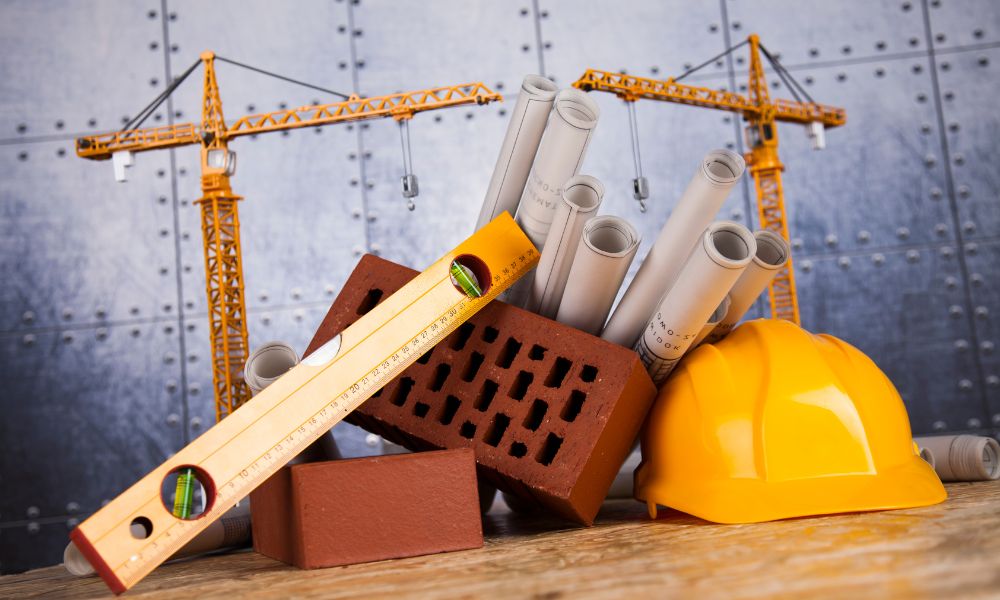In construction, securing a project requires a strategic and detail-oriented approach. Quantity surveyors play a crucial role in the tendering process, using their expertise to ensure that projects are accurately costed, efficiently managed, and successfully awarded. As financial advisors in construction, quantity surveyors bridge the gap between project owners and contractors, providing vital information to make informed decisions.
This blog explores the critical responsibilities of quantity surveyors in the tendering process, highlighting their skills, tasks, and the value they bring to construction projects. If you’re interested in a career in quantity surveying, understanding this role is essential.
What is a Quantity Surveyor?
A quantity surveyor is a construction professional specializing in cost management and financial planning throughout the project lifecycle. They are responsible for estimating costs, managing budgets, and advising clients on value for money. Quantity surveyors ensure that the project remains within budget, and they play a crucial role in procurement, contract management, and financial reporting.
In the tendering process, quantity surveyors contribute by providing cost estimates, advising on procurement strategies, and preparing tender documents that align with the client’s objectives. Their expertise ensures that bids are competitive, accurately priced, and aligned with the project scope.
Key Responsibilities of Quantity Surveyors in the Tendering Process
Quantity surveyors perform various responsibilities during tendering to support clients in selecting the most suitable contractor and achieving project goals.
Preparing Cost Estimates
One of the primary roles of a quantity surveyor is to provide accurate cost estimates for the project. By analyzing the project’s requirements, materials, and labor costs, quantity surveyors develop detailed cost forecasts that help clients understand the financial implications.
- Detailed Cost Planning: Quantity surveyors conduct cost analysis for each project element, including materials, labor, and equipment.
- Risk Assessment: They evaluate potential financial risks and provide recommendations to mitigate these costs.
Through precise cost estimation, quantity surveyors ensure that the client’s budget is realistic, achievable, and aligned with the project scope.
Developing Tender Documents
Quantity surveyors are responsible for preparing and compiling essential tender documents, which serve as the foundation for the contractor’s bid. These documents ensure that contractors understand the project’s scope, specifications, and expectations.
- Bills of Quantities (BoQ): A quantity surveyor creates a BoQ, which is a comprehensive list of project materials, quantities, and estimated costs. The BoQ allows contractors to prepare accurate bids and helps standardize bids for comparison.
- Project Specifications: Quantity surveyors define the technical and quality standards that contractors must meet.
- Contract Terms: They include contract terms, payment schedules, and other legal aspects that will govern the project relationship.
The tender documents created by quantity surveyors ensure that contractors can prepare informed bids, making it easier for clients to evaluate offers.
Selecting the Right Procurement Strategy
Procurement strategy determines how the client will acquire the project’s materials, labor, and resources. Quantity surveyors advise clients on the best procurement approach, ensuring alignment with project goals, budget, and timelines.
- Types of Procurement: Quantity surveyors may recommend traditional, design-build, or management contracting, depending on the project’s complexity.
- Procurement Timeline: They set realistic timelines to ensure efficient resource allocation and cost management.
Selecting the right procurement strategy is essential to avoid delays, manage costs, and achieve project goals effectively.
Evaluating Contractor Bids
After contractors submit their bids, quantity surveyors play a key role in evaluating and comparing each proposal. Their expertise helps clients identify the most cost-effective and capable contractor for the project.
- Cost Analysis: Quantity surveyors assess each bid’s cost elements, ensuring the prices are realistic and competitive.
- Compliance Review: They verify that each bid complies with the tender requirements, including quality standards, timelines, and legal aspects.
- Value Assessment: Beyond cost, quantity surveyors consider the value offered by each bid, including contractor experience, project approach, and resource availability.
Quantity surveyors help clients make informed decisions by comparing bids objectively, identifying potential risks, and recommending the contractor that offers the best value.
Negotiating Contracts
Once the client selects a contractor, the quantity surveyor assists in negotiating contract terms to protect the client’s interests and ensure fair terms for both parties.
- Payment Terms: Quantity surveyors help establish payment schedules aligned with project milestones, ensuring cash flow stability.
- Dispute Resolution: They include clauses for dispute resolution, specifying procedures for handling potential conflicts.
- Scope Changes: Quantity surveyors negotiate terms for handling scope changes to avoid unforeseen costs or delays.
Effective contract negotiation by quantity surveyors establishes a solid framework for project execution, minimizing risks and ensuring both parties understand their obligations.
Monitoring Financial Progress
Quantity surveyors remain involved throughout the project to monitor financial performance, track costs, and ensure adherence to the budget.
- Cost Reporting: They provide regular reports on project expenditure, helping clients stay updated on the budget status.
- Variation Management: Quantity surveyors manage variations in project scope, ensuring any changes are financially viable and agreed upon by all parties.
- Final Accounts Preparation: At project completion, they prepare the final accounts, ensuring that all financial aspects are reconciled and documented.
Ongoing financial oversight by quantity surveyors minimizes risks of budget overruns, providing clients with a clear understanding of project costs.

The Value Quantity Surveyors Bring to the Tendering Process
Quantity surveyors play an invaluable role in the tendering process by ensuring that project budgets are accurate, risks are identified, and financial goals are met. Their involvement brings the following benefits:
- Cost Efficiency: Through detailed estimates and budget planning, quantity surveyors help clients achieve competitive pricing, minimizing unexpected costs.
- Risk Reduction: Quantity surveyors anticipate and mitigate financial risks, reducing the likelihood of disputes or budget overruns.
- Quality Assurance: By preparing clear and comprehensive tender documents, they set quality standards that contractors must meet, ensuring project expectations are clear.
- Informed Decision-Making: With quantity surveyors’ analysis, clients can compare bids objectively, selecting the contractor best suited to meet their goals.
When to Involve a Quantity Surveyor in the Tendering Process
For the best results, it’s essential to involve a quantity surveyor from the beginning of the project planning phase. By doing so, clients can ensure that:
- Budgeting is Realistic: Early involvement allows quantity surveyors to provide accurate estimates, ensuring the budget aligns with the project scope.
- Tender Documents are Accurate: Quantity surveyors can create detailed tender documents that clearly define the project’s scope, reducing misunderstandings.
- Bids are Effectively Evaluated: With a quantity surveyor’s expertise, clients can objectively assess each bid, selecting the most suitable contractor.
Quantity surveyors play an essential role not only during tendering but throughout the project’s lifecycle, helping manage costs, track changes, and ensure successful project completion.
Conclusion
Quantity surveyors are invaluable in the construction tendering process, from estimating costs to preparing tender documents, selecting procurement strategies, and evaluating bids. By providing accurate financial insights and strategic guidance, they empower clients to make informed decisions that lead to successful project outcomes.
For anyone considering a career in quantity surveying, understanding the tendering process is essential. Quantity surveyors contribute significantly to project success, ensuring that construction projects meet financial goals and are delivered efficiently.
Are You Ready To Develop Essential Skills In Quantity Surveying
Our Quantity Surveying Course Online covers everything from cost estimation and procurement to tender preparation and contract management. Gain in-depth knowledge and practical skills to advance your career in construction. Enroll today and start your journey as a quantity surveying professional!




